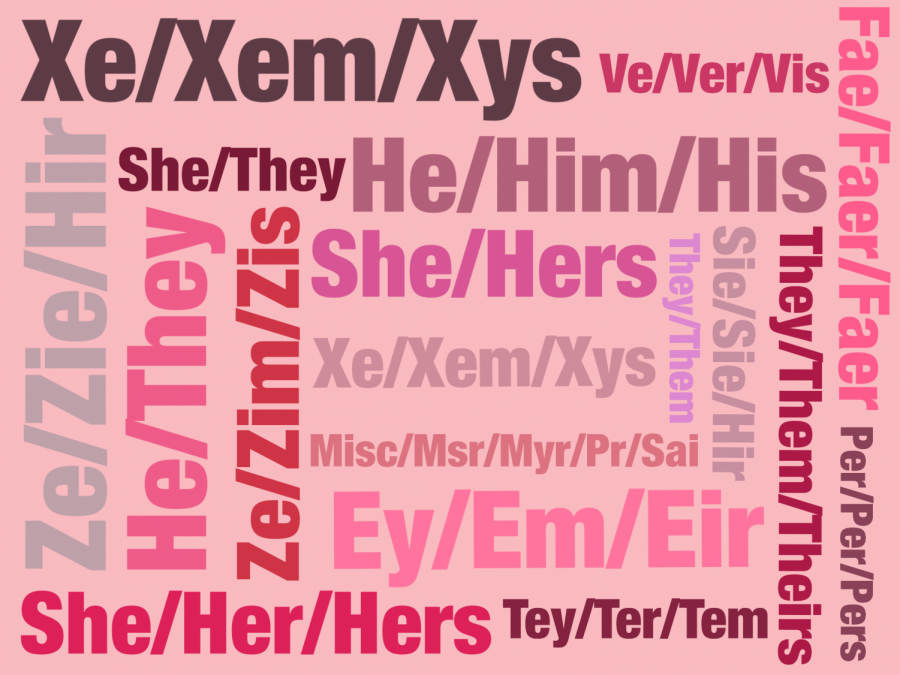The importance of asking for pronouns/preferred names at the beginning of the school year
September 24, 2021
People tend to think of the world in terms of ‘he’ and ‘she.’ They tend to take one look at somebody and decide whether they are a ‘he’ or a ‘she.’ Oftentimes, people tend to have a hard time forcing themselves to look outside that binary. But as the world changes, that clear-cut distinction of ‘he’ and ‘she’ becomes more of a grey area. It is becoming less about whether a person is a boy or a girl and more about where they fall on the grand spectrum of gender (if one is even on that spectrum at all).
As a society, there are people who use they/them pronouns, fae/faer pronouns, zey/zem pronouns and many others. There are people who use multiple different sets of pronouns. There are People who have changed either their name, their pronouns, or both. There are people who still identify with he/him or she/her pronouns, but not the ones they were assigned at birth. The world is changing dramatically in this aspect, and it is important to be respectful and welcoming to everyone.
More and more people are beginning to open up about their identities at younger ages, which means that a lot of the responsibility for creating a welcoming and comfortable environment falls on teachers and staff at schools. Kids spend a huge amount of time at school—at least six hours a day, five days a week, nine months a year. That adds up to over nine hundred hours in school a year. Imagine a person who could spend nine hundred hours a year not being themself, especially if they felt as though they couldn’t be themself at home either. Teachers and staff have a responsibility to create an atmosphere that welcomes everybody, and this starts by asking kids for their preferred names and pronouns.
According to M (he/him/fae/faer), ‘22, fae have had about eight teachers in four years ask faer for preferred name and pronouns at the beginning of the year. When asked how this number makes him feel, he said, “It makes me feel as though they might not accept me.” This is the underlying issue.
People like M experience so much discrimination, that to feel truly comfortable, it is often necessary for people to go out of their way to be accepting.
“I would tell teachers when I used they/them pronouns, but I don’t now that I use neopronouns,” said M. “I started using he/him in addition to fae/faer so that I could use he in class and wouldn’t have to explain my pronouns to my teachers. This goes to show that there also needs to be more education for teachers about all the different types of pronouns.”
M did not say that he had ever had a bad experience with a teacher but instead said that he just didn’t feel comfortable sharing about his neopronouns because the vast majority of people understand so little about it.
When asked, Dr. Amanda Say, a chemistry teacher at Minnetonka, said that she was “encouraged to ask students” when she started here three years ago and that it “had never occurred to her to do it before.”
“Students are getting progressively more comfortable being open,” said Say.
Say also said she feels it is important to ask out of respect.
“I respect my students,” said Say, “and I want to create that opportunity for you to feel like part of the class.”
This sums up exactly why it is so important. People who have changed their name and pronouns, or who fall outside of the gender binary, or who use neopronouns, should be able to feel as comfortable as everybody at school. They should not be singled out or have to feel scared or uncomfortable simply because of their identity. Breezes implores teachers to start asking and to keep learning for the sake of their students.






























